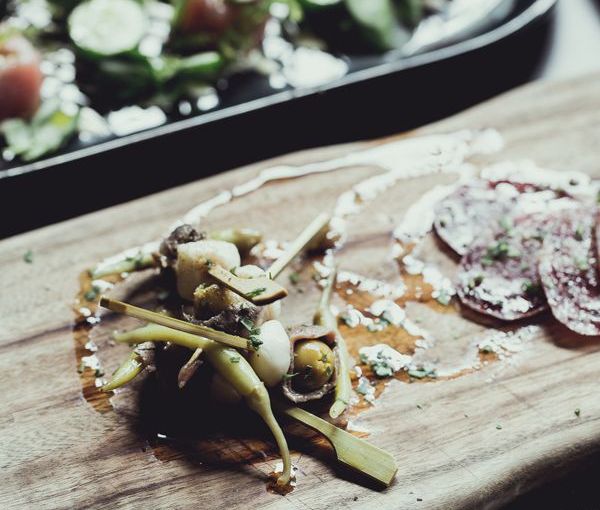New Adelaide restaurants are ditching tablecloths and formality. In their place are strangers perched alongside each other on bar stools and a proliferation of meals designed for sharing. But never fear, says CityMag's gregariousness expert James Dunsmore - the change will make us better people.
The death of food envy
Despite the fact that you likely said ‘I hate people’ at least once today, there’s no denying that we humans are social beings. As Facebook, Instagram and increased convenience ironically push us further away from each other, help has arrived in an unlikely chariot: Adelaide’s restaurateurs are here to restore the balance.
Whether it’s encouraging interaction between friends by offering menus designed to share, or pushing the boundaries further by sitting strangers together on large communal tables, our eating habits are being slowly reshaped.
When Press* opened its doors in September 2011 in an abandoned printing press warehouse on Waymouth Street, it became a leader of the movement. Chef Andrew Davies says that while the sharing menu was well-received from the get-go, it took people a few months before they were comfortable with the communal tables. He was confident, though, that they would work eventually.
“It’s a social thing,” he says. “It also helps people order through visuals as they see what other people are having around them and they think – ‘I’d like that.’”
Pyoung-Hwa Kim, chef and owner of La Bonne Table and Next Table on Wakefield Street, found that initially his customers required some help when ordering from the sharing menu. This, he says, was not negative at all, but instead was useful because “it helps to build a conversation between the customer and the wait staff”.
Pyoung-Hwa’s venue is a hidden gem – one that’s well worth unearthing.
A hospitality veteran, he was inspired to open his own place when he saw that the Adelaide eating public were getting adventurous and were ready for a change. As he established the restaurant, he paid attention to little details that would foster a more social experience. For example, Next Table’s bartop was intentionally constructed to be extra deep.
“By having a deep bartop,” he says, “an individual is encouraged to stay, chat to other people and the bar staff, with enough room for a drink and a bite to eat. It is much more social.”
The shared eating model, already common in large cities and almost inescapable in Chinatown, seems to be a mash-up between the pre-eighteenth century table-d’hôte and the later service au restaurant. According to historian Rebecca Spang, the first table-d’hôte consisted of large communal tables, with just one dish, that was set by the kitchen and served at a particular time – first in, first served. Service au restaurant introduced individual tables, course choices and flexible opening hours and with it a new sense of individualism.
See the latest Chef VS Public BBQ to read about how one of Adelaide’s original shared menu chefs – Natalie of The Apothecary – fared against the dysfunction of a Rymill Park hotplate.
What we see happening at places like Press* and Next Table is a combination of the best of both worlds. Here, a sense of community can be found in a friendly smile with a stranger sitting opposite, without fear that they will take the last croquette before you do.
Back at Press*, CityMag asks Andrew what he considers to be the primary benefit of shared food. There is brief silence as he contemplates his conclusion.
“Shared dishes turn eating out into a whole social experience,” he says. “Conversation is never quiet when you are sharing.”






